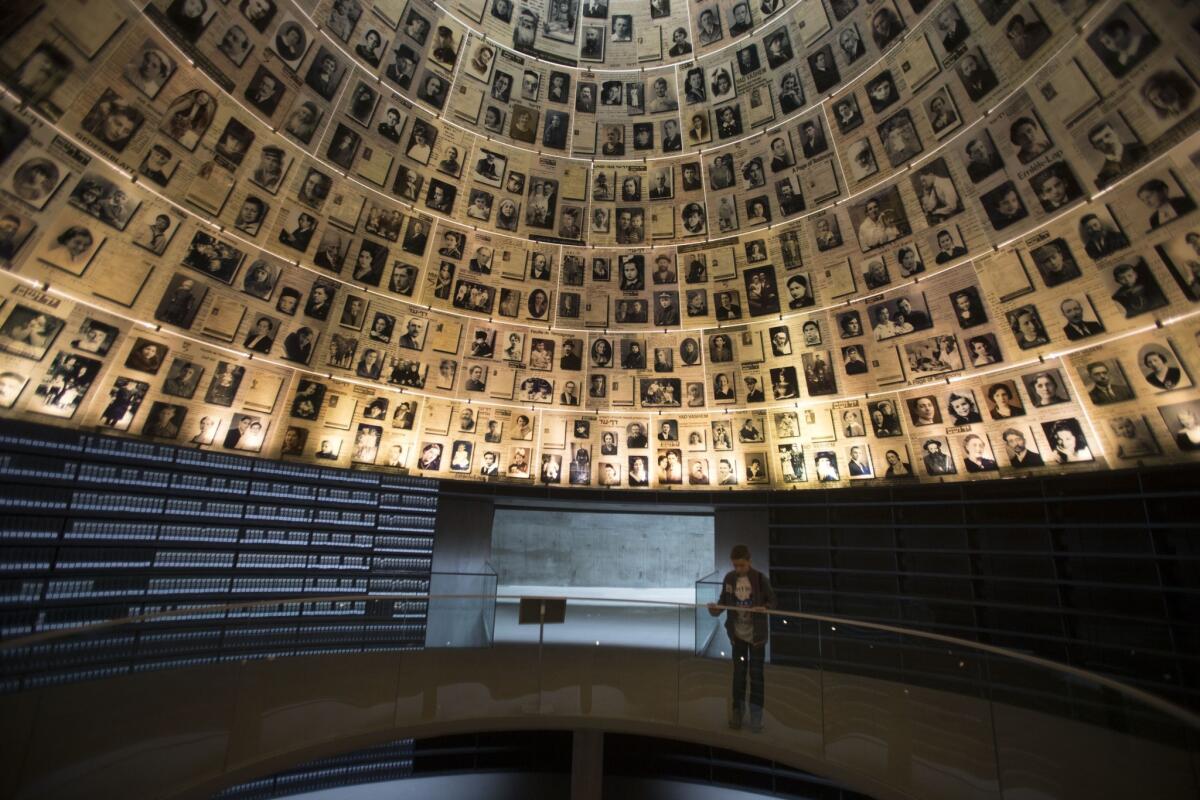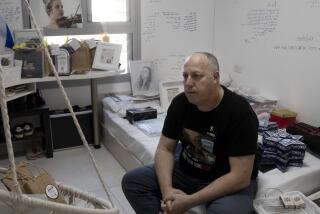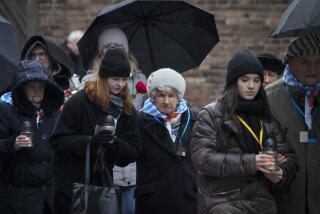Op-Ed: My childhood memories of the Holocaust in a world of COVID-19

Celebrating Passover during the COVID-19 pandemic brings back memories of Seders spent in the Bergen-Belsen concentration camp, starting when my twin brother and I were 6 years old.
At 82, we are in all likelihood the last surviving twins of the Holocaust — in any case, a shrinking remnant of the 5% of Jews from Holland who were deported to Nazi camps and returned.
Under impossible conditions, a group of prisoners in Bergen-Belsen from Salonika, Greece, managed to make Passover matzos. Clearly this was not a communal meal, the matzos produced were only a very few, but it spoke to the strength of the human spirit in the face of death, the courage to maintain an ancient and hallowed Jewish tradition in a world of fear and terror.
Not to minimize the catastrophe of the current pandemic, with soaring numbers of people infected and a numbing death toll, but the odds of survival in Bergen-Belsen were of a different magnitude, infinitesimally small. To put it simply, all Jews in German-occupied Europe were sentenced to death under the terms of the Nazi regime’s Final Solution and its orchestrated plan to exterminate the Jewish people.
Even those sent to a slave labor camps rather than an extermination camp had their days numbered because the Nazis carefully calculated how long those prisoners could live under conditions of forced labor, starvation, beatings, exposure and exhaustion. No amount of social distancing or hand washing could change the odds of our survival.
Under all this horror, there was one freedom our tormentors could not control or vanquish: freedom of the mind and freedom of the human spirit to rise above what had befallen us, to find occasional refuge from the tragedy of our circumstances.
My mother at times mentally cooked a favorite meal, recalling every step of its preparation and its pleasures. When I visited my father after he had been beaten almost to death when SS guards caught him giving debilitated laborers under his supervision some moments of rest, he asked me to hold a lid of a tin can to his face so that he could shave. Many of his bones were broken, but he still wanted to maintain his dignity, to make a statement that his spirit could not be bowed.
There were other inmates who risked their lives by missing a patrol to take care of a dying relative or friend. Some prisoners helped inmates find shoes, however shoddy, to replace a pair that had been lost or stolen or disintegrated beyond repair. Without shoes, without a tin cup to hold the meager rations, a prisoner’s life was in effect over.
From a letter I received after the war, even I as a child seemed to have offered advice on alleviating painful and incessant hunger by encouraging those in line for our daily meager rations of turnips to swallow as slowly as possible. In retrospect that was not helpful, since the adults were given only a few minutes to gulp down their slop before harsh orders and loud whistles called them back to racking toil.
In this unfathomable abyss it was all about maintaining hope in a dystopian world — looking to the light in a world of seeming darkness, remaining strong, remaining human, thinking of others when staying alive was a full time and mostly doomed effort.
Passover this year coincides with the liberation of Bergen-Belsen on April 15, 1945. A few days before that day, my family and 2,500 other prisoners were put on what was later famously known as the Lost Train, headed east, ostensibly to the gas chambers when in fact the gas chambers had already been bombed by the Allies. After traveling for 13 days in a tortuous journey during which a third died without adequate food or water, the train was liberated by Russian troops in a small town in eastern Germany.
When British troops reached Bergen-Belsen, they found 13,000 unburied dead added to thousands of others who met their final end from typhus, an epidemic that raged through the camp in its final months, among its victims Anne Frank and her older sister, Margot.
Now we are fighting an enemy that no one can see, not as ruthless as the Nazis but nevertheless truly frightening. Our lives have been transformed, and every day brings new anxieties, new limitations, new fuel for feeling overwhelmed and helpless.
With vigilance, science and a medical system now in fuller throttle, this nightmare will come to an end and we will be better prepared the next time the world becomes unhinged by a new pestilence.
In the fear and uncertainty of this time, I am struck by the heroic and merciful acts I first encountered as a young child behind barbed wire. We witness medical workers who take on herculean tasks of care and compassion when their lives are at stake. We see volunteers from all over the country who see a need and go that extra mile. Once again, it is that best in humanity that inspires and leaves a lasting legacy.
Marion Ein Lewin and her twin brother, Steven Hess, survived the Westerbork and Bergen-Belsen concentration camps. She directed the Office of Health Policy Programs and Fellowships at the Institute of Medicine of the National Academies in Washington, D.C., from 1987-2001.
More to Read
A cure for the common opinion
Get thought-provoking perspectives with our weekly newsletter.
You may occasionally receive promotional content from the Los Angeles Times.










